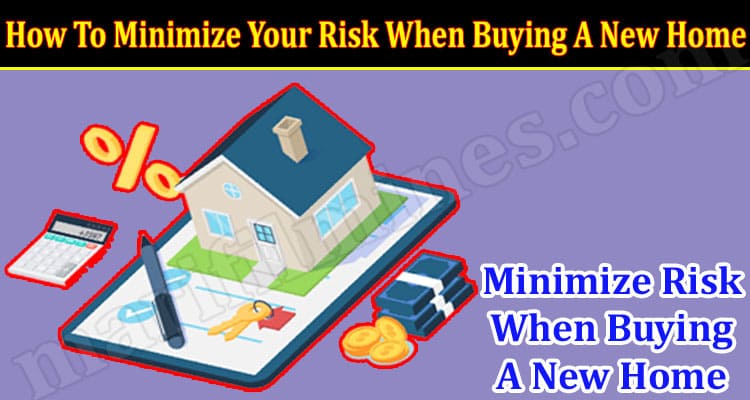When buying a new home is always a great investment – it provides you with a basic necessity, after all – there are risks to consider. The property market is a fickle beast, and it is impossible to guarantee that you are getting a good price on your home. Furthermore, you’re making a long term commitment. You need to be certain that you’ll be able to pay your mortgage for the foreseeable future.
You can easily minimize the risk of losing your home in a natural disaster or accident. If your home is destroyed by what is called a ‘named peril’, a home insurance policy will cover it. There are instances which are excluded, such as flooding, but these are generally covered by insurance you buy from the government.
But insurance does not protect you if you simply can’t afford your home any longer. The good news is that there are ways to minimize your risk when buying a new home. Make sure to do the following.
Research how the economy affects you
If you don’t know much about economics, you may not think there is much you can do to prepare for future possibilities. However, when it comes to the personal impact of the economy, the information is actually quite intuitive. For example, you’ve probably heard a lot of talk about high inflation. By learning about what you can expect from the future in this regard, you will get a better idea of how much you can afford if prices continue to rise.
Other things to consider are the possibilities that you will lose your job if a recession occurs, whether you will lose money on your home if the market crashes, and the safest investments you can make that will actually earn you income.
Get critical illness cover
Losing your job can be catastrophic to your finances, especially if you have a home to pay for. It’s impossible to be 100% sure you will keep your job in future, as your company could go through serious issues. But if you’re confident about your job, you can make the decision to buy a home without too much risk.
However, that does not take into account the possibility that you will lose your job for a totally unavoidable reason. A major chronic or terminal illness can leave you unable to continue working. You can lose your source of income in an instant.
For this reason, it is worthwhile to get critical illness cover with your life insurance. Life insurance will help your family cope if you die, but critical illness cover will help you even while you’re still alive. It will pay out a sum to help you with your living expenses if you suffer a critical illness.
There are other potential life insurance riders that serve a similar purpose. An early death clause will allow you to get your life insurance paid out if you’re diagnosed with a terminal illness. This can save your family financially, making sure you don’t lose your home due to your loss of income.
Look at the local housing market
The housing market is difficult to truly understand, as no one can predict all the factors that will impact it. Even when it seems certain an event will crash the market – as many thought at the start of the pandemic – the market might go in the opposite direction. That said, you can glean some valuable information by making a quick study of the local housing market.
Take a look at the cost of housing in your area. Research how this has changed over the past few months. You will see a pattern emerge. Then look for articles about whether this pattern is expected to continue or reverse.
There is no guaranteed way to know the ‘true’ value of your new home. Since value is based on abstract factors, you are making a decision based on circumstances more than anything. But you can get an idea of whether the value of your home will go up or down.
The good news is that, while a housing market crash might leave you with buyer’s remorse, you are still going to be paying the same amount for your home – an amount you determined you could afford.
Buying a home always comes with risks, but that doesn’t mean it’s not a good idea. The above tips will help you minimize the risks as much as possible.

